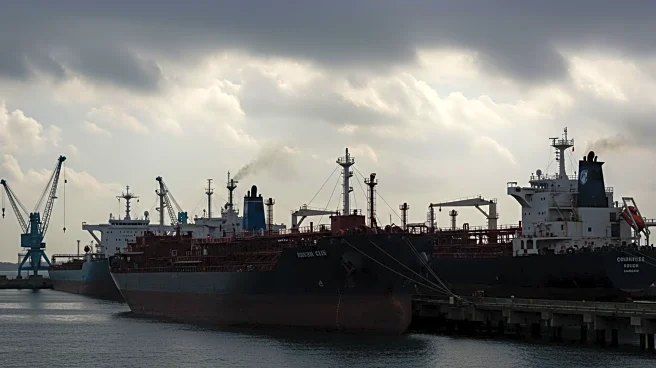What's Happening?
The growth of the shadow tanker fleet, used to evade Western sanctions, has slowed as new sanctions target Russian oil exports. The European Union and Britain have imposed further sanctions on Russia, adding to existing U.S. restrictions. These measures affect over 440 tankers, complicating Russia's oil shipments to major buyers like China and India. The shadow fleet, comprising older vessels with opaque ownership, has been crucial for Russia, Venezuela, and Iran to bypass sanctions. The fleet's size is estimated at 1,200 to 1,600 tankers, representing a fifth of the global tanker fleet.
Why It's Important?
The slowdown in the shadow fleet's growth reflects the increasing effectiveness of international sanctions in curbing illicit oil trade. This development has significant implications for global oil markets, as it may restrict Russia's ability to finance its war efforts through oil revenues. The sanctions also highlight the challenges faced by countries relying on shadow fleets to circumvent trade restrictions. The situation underscores the geopolitical tensions surrounding energy trade and the ongoing efforts to enforce compliance with international sanctions.
What's Next?
As sanctions continue to tighten, the shadow fleet may face further scrutiny from regulators and compliance teams. This could lead to a reduction in the number of vessels willing to engage in risky operations. The international community may also explore additional measures to enforce sanctions and prevent the use of shadow fleets. The situation may prompt Russia and other affected countries to seek alternative strategies for oil exports, potentially impacting global energy dynamics.











